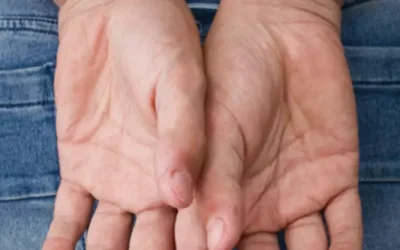Sobriety is a long, ongoing process, but help, support, and treatment can make it easier. In some cases, reactions can be triggered by a true allergy to a grain such as corn, wheat or rye or to another substance in alcoholic beverages. Although not a true allergy, in some cases, what seems to be alcohol intolerance might be your reaction to something alcoholic rage syndrome in an alcoholic beverage — such as chemicals, grains or preservatives. Alcohol intolerance can cause immediate, uncomfortable reactions after you drink alcohol. The most common signs and symptoms are stuffy nose and skin flushing. Now that you’re no longer drinking, you have a chance to embrace your sober life and redefine your passions.
Is Alcohol the Sole Cause of Rage in Alcoholics?
- Alcohol use disorder affects millions of people, but it often goes undetected.
- Since its discovery in the late 1940s, fewer than 100 cases have been reported.
- While drinking alcohol isn’t the sole reason for assault, it plays a substantial role in whether someone commits a violent crime.
- If you’re already coping with depression or other mental health concerns, these symptoms might further complicate matters and make you feel even worse.
Studies have estimated that up to 50% of alcohol-dependent males display violent behavior. Rage can be triggered by many things, over words at a social gathering, being refused another drink, or even from perceived slights. Managing and understanding the triggers for this aggressive behavior is critical when dealing with an angry inebriated individual especially when attempting to diffuse the situation.

Co-Occurring Disorders
Because they’re naturally predisposed to be angry when they drink, this becomes a key part of their personality because they can’t control their drinking or their temper. Alcohol effects the prefrontal cortex of the brain, the region that moderates things like decision-making. What this means is that people whose personalities make them naturally quicker to become angry than others are even more likely to lose control under the influence of alcohol. This has an effect on the life of the person exhibiting this consistent anger. It makes people — even their closest friends — less willing to spend time with them. It can have a major impact on their family members’ quality of life and even be a detriment to the healthy development of any children they have.
Drugs & Supplements
Did you recently experience an incident that stemmed from your alcohol-related aggression? These situations likely spark emotions when you think about them — perhaps you feel embarrassed or ashamed. This aggressive behavior may result in other issues, such as verbal abuse. If drinking causes a blackout, you may not even remember being aggressive unless someone reminds you about it. By perpetuating such behavior, people can end up damaging meaningful relationships — yet another effect of alcohol-based aggression. Because alcohol is a psychoactive drug, it temporarily alters your mood, perception and feelings.
- Other holistic methods are often used during a comprehensive addiction and anger management treatment program as adjunctive, or complementary, treatment methods.
- Mayo Clinic is a nonprofit organization and proceeds from Web advertising help support our mission.
- It can even be productive because it tells us we need to address some things that aren’t going well in our lives.
- Massage therapy can help to relieve physical tension and therefore promote mental clarity.
- Anger is an intense emotion you feel when something has gone wrong or someone has wronged you.
- They were more likely than those without the variation to have a history of outbursts and fights while drinking, as well as to have been arrested for driving under the influence.
Additionally, there is evidence that chemical and biological factors play a role. People with higher levels of testosterone are more likely to be aggressive. Lack of impulse control can make someone fly into a fit of rage or become aggressive rapidly.
Support positive habits
Medical detox programs are often the first stage in a comprehensive addiction treatment program. These programs usually last 5-7 days on average and commonly use medications to manage difficult physical and emotional withdrawal symptoms. According to the Substance Abuse and Mental Health Services Administration (SAMHSA), nearly 8 million adults in the United States struggled with both a mental health disorder and addiction in 2014. When a person struggles with both alcohol addiction and anger management problems, the issues exacerbate each other. It is important to note that alcohol can exacerbate underlying anger and aggression issues rather than directly causing them.
- Drinking alcohol releases norepinephrine into the brain, a stimulant that can decrease our inhibitions while increasing our impulsivity.
- If you don’t enjoy or participate in the same types of activities or hobbies, you can still encourage them to seek out things they enjoy or find new interests.
- There are many organized programs that provide the support of peers, usually through frequent meetings.
- Plus, if you’ve done things while drinking that harmed you or people you love, you may also carry some pain and have plenty of sharp words for yourself.
Who is at Risk of Becoming an “Angry Drunk?”
A former Long Islander who lost his teaching and coaching jobs because of alcohol-related accusations shared his story last year. For the 50-year-old woman, doctors suspect her repeated antibiotics for urinary tract infections and acid-reducing medication for severe heartburn may have disrupted the gut microbiome. She went to emergency departments seven times in two years and was diagnosed with alcohol intoxication.